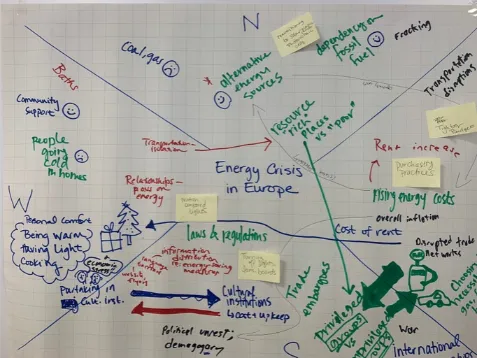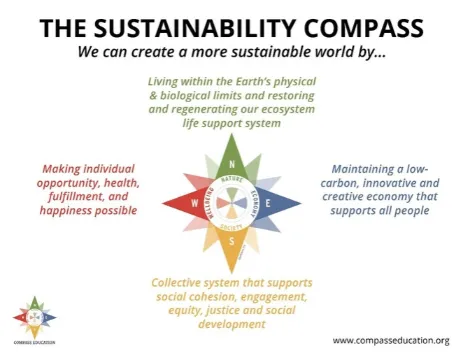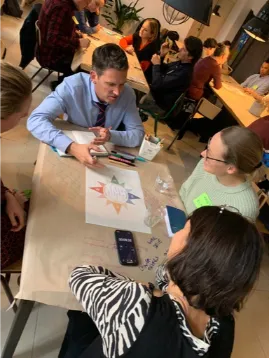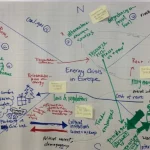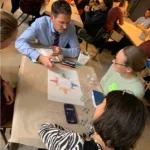Teacher: Gitanjali Paul

Gitanjali Paul
Gitanjali believes that quality education values learner’s experiences and unique perspectives. While teaching high school social studies for six years at the International School Manila, she volunteered with the nonprofit Compass Education and discovered the power of systems thinking tools to connect her students with meaningful learning and community action. In 2021, Gitanjali became the organization’s Education Program Manager. She leads a Global Facilitator and Volunteer Network that develops dynamic learning experiences to prepare learners, teachers, and leaders of all ages to use systems thinking to educate and act for a more sustainable world.
Usefull links related to the Solution
Overview
Compass Education is a non-profit organisation formed of volunteer educators that has developed a tool which has been used successfully to allow students to explore the complexity of the world as it relates to climate change. The tool- The Sustainability Compass – along with other pedagogical tools, allows learners to explore and organise different considerations related to sustainability and climate change.
Theory of Change
To enable learners to form their judgments about climate change issues, learners need to understand the complex and ever-changing interaction of the world around them. The team has developed The Sustainability Compass as a tool to allow learners to explore this system-level thinking. The compass provides a visual representation of the interconnectedness of issues related to a topic and enables students to navigate a path to sustainable decision making.
Approach and Actions
The compass has four compass points – nature, economy, society and well-being. These points are used to consider an issue or question related to climate change. The ‘PATH’ pedagogical approach is also used to develop an understanding of the issue and to visually represent the complex, interconnectedness of the considerations around the issue. First, the learner or teacher Picks a topic; this is written in the middle of a sheet of paper and the compass, and its four points, are drawn around it. The sheet is divided into four so that each compass point is situated in a triangle of paper. Add ideas; the learners write out ideas and questions related to the main issue but organised under the four compass points. Think Analytically; connections within the different compass points, and between the compass points are made and shown using lines and arrows. Finally, Have another look; this step encourages learners to look again at the connections that have been made, learners can now identify very connected ideas and recognise important elements related to the issue- they might then decide to explore these elements further. The organisation also provides lesson plans and other resources to support climate change teaching in the classroom.
Impact
The movement has now spread to 96 countries, 800+ schools and boasts 3000+ trained educators. In the last two years, Compass Education has worked to create the organisational structure and digital platform to support the rapid dissemination of system tools in K-12 education and multiple contexts. Today, Compass Education is positioned to grow exponentially and in the next 2-3 years they hope to accomplish scale through partnerships and foundation funding that will allow them to make available their learning resources in multiple languages and provide training in socio-economic-cultural diverse contexts.
